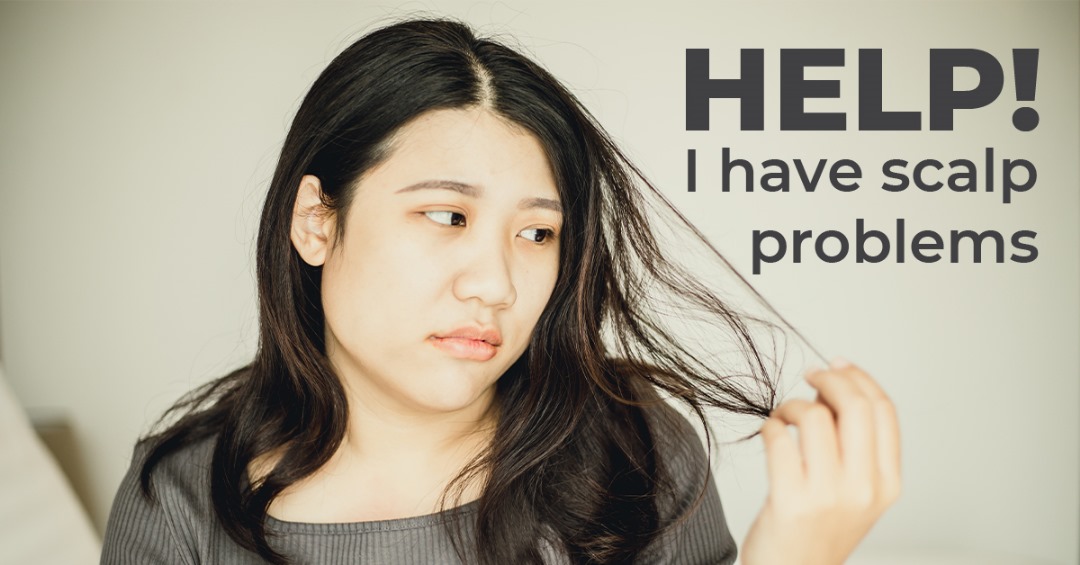
Both an oily scalp and dandruff can have various causes, and sometimes they can occur together. Here are the common causes of each condition:
Causes of Oily Scalp
Humid Climate: Malaysia has a hot and humid tropical climate, which can lead to increased sweat production on the scalp. Excess sweat can mix with sebum (the natural oil produced by the sebaceous glands) and contribute to an oily scalp.
Diet: The Malaysian diet, which often includes fried and oily foods, can sometimes lead to excess oil production in the skin, including the scalp.
Hormonal Changes: Hormonal fluctuations, which can occur due to factors like puberty, pregnancy, or menopause, can lead to increased sebum production and contribute to an oily scalp.
Hair Type and Genetics: Genetics play a role in determining hair type and the natural oiliness of the scalp. Some individuals may be genetically predisposed to having an oily scalp.
Hair Care Products: The use of hair care products like shampoos and conditioners containing heavy oils or silicones can contribute to oil buildup on the scalp.
Stress: Stress can lead to hormonal changes that affect sebum production, potentially exacerbating an oily scalp.
Causes of Dandruff
Malassezia Fungus: Dandruff is often associated with the overgrowth of a yeast-like fungus called Malassezia on the scalp. This fungus feeds on the natural oils of the scalp and produces substances that can irritate the skin, leading to flaking and itching.
Dry Skin: In some cases, dandruff can occur due to dry skin rather than excess oil. Dry skin can result from cold weather, low humidity, or certain skin conditions.
Sensitivity to Hair Products: Some individuals may be sensitive or allergic to ingredients in hair care products, which can lead to scalp irritation and dandruff.
Not Shampooing Enough: Contrary to what one might expect, not shampooing regularly can lead to the accumulation of dead skin cells and oils on the scalp, which can contribute to dandruff.
Other Skin Conditions: Certain skin conditions, such as psoriasis or eczema, can cause dandruff-like symptoms.
Stress: Stress can weaken the immune system and potentially exacerbate dandruff, especially if it is caused by an underlying fungal issue.
Diet: While not a direct cause, a diet lacking in certain nutrients may weaken the skin’s barrier function, potentially making the scalp more susceptible to dandruff.
It’s important to note that both conditions can have overlapping symptoms, such as an itchy scalp. Have oily scalp and dandruff problem? Come to Feathair and book a consultation to find out more.